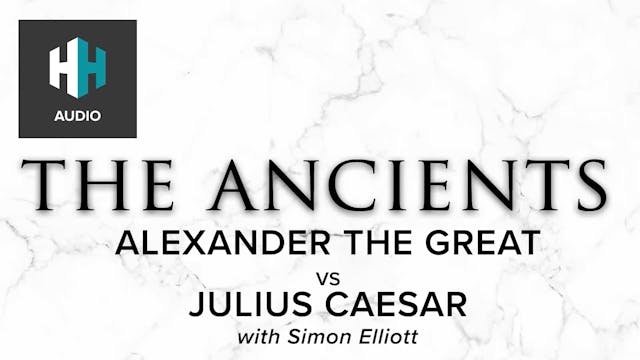🎧The Seleucid Empire: In Rome's Shadow
🎧 The Ancients
•
1h 2m
At its height, the Seleucid Empire stretched from Thrace (modern day Bulgaria) to the Indus River Valley. Emerging from the tumultuous ‘Successor Wars’ that followed Alexander the Great’s passing, for over a century it was a superpower of the eastern Mediterranean. This, however, ultimately led it into conflict with Rome at the beginning of the 2nd century BC. The result was a devastating defeat for the Seleucid King Antiochus III ‘the Great’ at the Battle of Magnesia, fought around this time of year in either December 190 BC or January 189 BC. Following the battle, the Seleucids were humbled by a damaging treaty, but what happened next? What followed for the Seleucids, having been humbled by the Romans? Did they descend from superpower to suppliant? Or did they experience a resurgence? In today’s podcast, Eduardo Garcia-Molina, a PHD Classics student at the University of Chicago, argues the latter. Focusing in on the reign of Antiochus IV, Eduardo highlights how the Seleucid Empire remained a powerful entity in the wake of Magnesia and their Roman defeat.
Up Next in 🎧 The Ancients
-
🎧 Spinning in the Roman World
Spinning held an important place in ancient society, and no, we're not talking about ancient exercise classes. A task for women and slaves, it was used to create clothes, ships sails, and ropes, and its products were integral to all parts of society. An unchanging art for centuries and seen acros...
-
🎧 Cannibalism
It’s a macabre topic to discuss, but also one that has fascinated people for generations. So what has archaeology revealed about cannibalism among prehistoric societies? And if cannibalism does seem to have been practised among certain groups, then why? Appalachian State University’s Dr Marc Kiss...
-
🎧 Alexander The Great vs Julius Caesar
They’ve both been described as the greatest military commanders in the ancient world, but who really takes the title? Alexander, the undefeated conqueror of the largest empire in the world, or Caesar, a leader who was critical in expanding and creating what later became the Roman Empire? For this...



